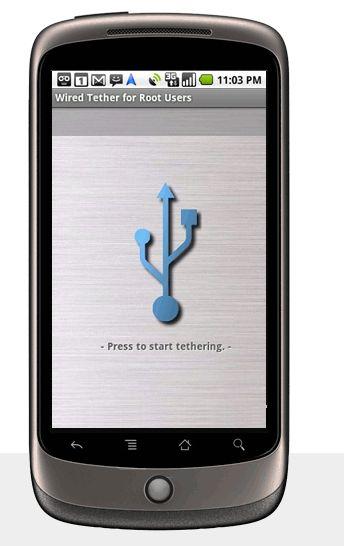
People have been tethering their phones to computers for Internet access for years now. Since the introduction of smartphones – especially the iPhone and Android devices – tethering has become much more popular. Even before, carriers charged an additional fee for tethering. As it becomes increasingly popular though, they are more prone to perform sweeps and catch those sly users that find ways to tether by unofficial means.
This morning, AT&T announced that they would be cracking down on unauthorized tethering. There is no doubt in my mind that they have the right to do this. After all, it is their network and they will ultimately have final word. But the question is: should they?
In today's world, most smartphones come with a hotspot feature built in. This is usually blocked out by the carrier unless you pay the monthly fee. However, our cell phone technology is advancing at breakneck speeds. With smartphone operating systems, users and developers have gotten pretty smart and provided workarounds for accessing the hotspot and tethering features on your phone without having to pay.
If you want to officially tether on AT&T, you are required to pay for the $25 data plan, which gets you 2GB of data. The tethering fee itself is an additional $20, which adds 2GB more to your data usage pool. That adds up to a total of $45 for 4GB of use. Going over the 4GB allotment will result in an automatic $10 charge that will add 1GB of additional data.
The problem I have with this is, users are already paying for data, why should AT&T care how they use it? Tethering your device to a computer and browsing the web is likely to pull more data at a faster rate than a smartphone would or could. That is a good thing for AT&T, it means the chances of users going over their allowed data usage is much higher. Without the tethering fee, your maximum monthly data allowance is 2GB. For each additional gigabyte over that, you are charged $10. Therefore, if a user is tethering by their own means with a 2GB plan and they end up using 4GB or more, AT&T is going to make the same amount of money.
As said by Alex, users who have been using unauthorized methods of tethering have three options: stop tethering and keep their current data plan, call AT&T and add the official DataPro 4GB for Smartphone Tethering plan, or if the customer takes no action by March 27, AT&T will take the liberty of adding the tethering fee for them.
It's safe to say that this action isn't particularly for users with 2GB plans, and the listed options hint at that pretty heavily. You may recall back when AT&T scrapped their unlimited data plans. Who could forget, right? Those already on AT&T with an unlimited plan were grandfathered in and got to keep said plan. For those thousands and thousands of customers with their grandfathered plans using unauthorized means of tethering, they have been able to tether all they want and have been charged no additional fee.
Basically, AT&T has pushed those unlimited data users who tether unofficially into a corner. They will be forced to stop or they will lose that lovely unlimited data plan they have fought so hard to keep. On top of that, they will end up paying $15 more.
I'm sure it was a tough call for AT&T, but they can't have some people tethering on their network and using 10GB or more each month for free while others are paying $20 for 2GB. This is the only fair way for AT&T to deal with the matter. For those with grandfathered plans still tethering, it gives them a fair chance to keep their plan by putting an end to the tethering. And it doesn't really affect those users with the 2GB plan that continually go over their allotment. That said, it directly affects those that tether with the larger data plan and never surpass 2GB, but there really isn't a way around that. Let's just hope for those light users that the sweep overlooks their tethering habits.